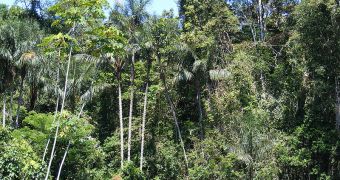The Brazilian Senate gives green light to a new controversial legal framework, meant to change the Forest Code, stipulating how many acres of forest can be wiped off private lands every year.
Eco-groups talk about an emerging “disaster,” but their protest is useless at this point in time, since the government has firmly decided in favor of a small group of names pulling the strings in this sector, known as “ruralistas,” Mongabay reports.
Despite that rainforests in Brazil have shown encouraging signs of improvement within the last year, their current situation might worsen considerably in a relatively short time, because of the revised set of regulations.
The disputed project raised the anger of a large segment of the population, since farmers who have disregarded the former Forest Code before 2008 would no longer have to suffer the consequences of their actions.
As if this weren't enough, they will not be forced to restore the balance of vulnerable woodland, by planting other trees in cleared areas, if their surface measures less than 400 hectares (988 acres).
The owners of larger properties will have enough time to minimize their ecological footprint, about two decades, to comply with the legal changes and fight the effects of deforestation by renting or buying a parcel of forests in the vicinity of their cleared lots.
The revised Forest Code is close to being implemented, but still awaits for the approval of lower house of Congress. Rumor has it the new framework will not experience any difficulties and will be adopted sooner than environmentalists would like to anticipate.
Most of the eco-groups are trying to change the current position of President Dilma Rousseff, hoping authorities won't disregard previous illegal deforestations, while contributing massively to rainforest destruction. Even under these circumstances, the president is likely to adopt the harmful project by next year.
According to WWF officials, this measure would have a devastating impact on the Amazon ecosystem, since 76.5 million hectares (295,000 square miles) of biodiverse habitat could be wiped off the face of the earth, a surface bigger than the state of Texas.
On the other hand, authorities supporting this new set of regulation say this is the only way of blocking illegal deforestation operation that are developed by more than 90% of landowners in the Amazon.
It seems that the authorities have a tremendous pressure on their shoulders. They will have to choose between the opinion shared by thousands of protestants and the will of powerful lobbyists.
"80% of Brazilians are against the Code promoted by the rural sector - a project approved by 80% of the Chamber for Deputies. Dilma will need to choose between 80 percents - those of the Brazilian population or those of the Brazilian Congress," declared Greenpeace Amazon team leader Paulo Adario.

 14 DAY TRIAL //
14 DAY TRIAL //